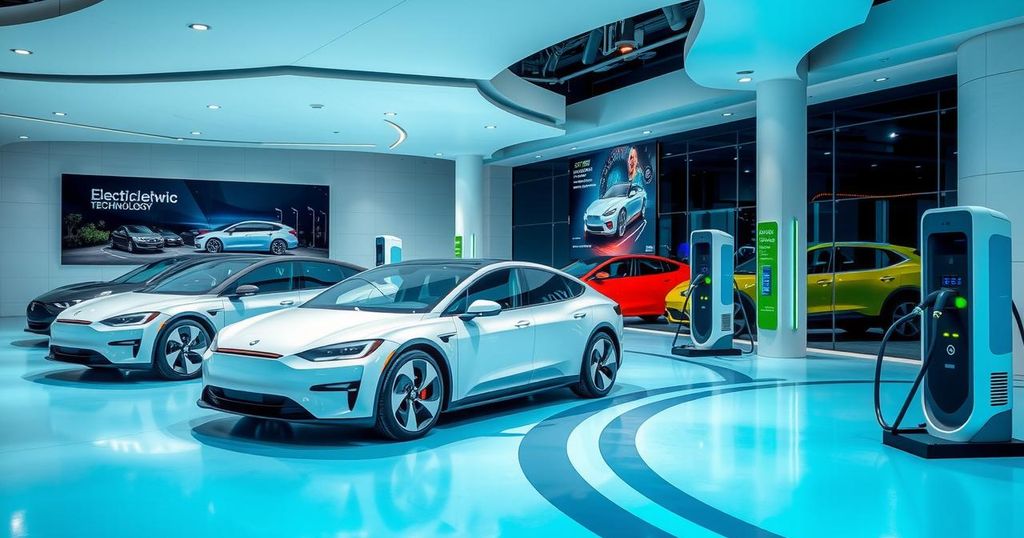BYD Plans Major Saudi Expansion Following Tesla’s Market Entry

- BYD is planning to expand its presence in Saudi Arabia to ten showrooms by 2026.
- The company’s initiative aligns with Saudi Arabia’s goal for 30 percent EV adoption by 2030.
- Jerome Saigot emphasizes the need for speed and ambition in the Saudi market.
- Tesla’s entry into Saudi Arabia has positively impacted consumer awareness of EVs.
- Challenges for EV adoption include high costs and limited charging infrastructure.
BYD’s Strategic Expansion Plans in Saudi Arabia
Chinese electric vehicle (EV) maker, BYD Co. is planning an ambitious expansion into Saudi Arabia, aiming to triple its current operations in the Kingdom. Jerome Saigot, who serves as the managing director for BYD in Saudi Arabia, announced this significant move following the recent entrance of Tesla Inc. into the local market. Currently, BYD operates three showrooms, but with a vision set for the future, the company plans to expand this number to 10 by late 2026, in a bid to capture more of the growing EV segment.
Saudi Arabia’s Growing EV Market Strategy
This expansion seems to sync well with Saudi Arabia’s broader ambitions to solidify its status as an EV hub in the region. Pursuing a goal of achieving 30 percent electric vehicle adoption by 2030 forms part of its Vision 2030 economic diversification plan. According to Saigot, navigating the Saudi market demands urgency and boldness. “You need to go fast. You need to think big,” he remarked, emphasizing that BYD does not aim to merely remain at selling 5,000 or 10,000 cars per year but rather matching the fast pace of the market.
Challenges and Opportunities in the EV Landscape
The Public Investment Fund of Saudi Arabia has been heavily investing in the electric vehicle sector, supporting companies like Lucid Motors, and launching its own brand, Ceer. Investment in charging infrastructure is also a key focus. Despite these efforts, the reality is that EVs only represent a bit over 1 percent of total vehicle sales in the Kingdom. Challenges remain such as high purchase costs, shortage of charging stations, and harsh climate conditions, as highlighted in a report from PwC. Interestingly, BYD’s Saigot noted that Tesla’s entry invigorates awareness of electric vehicles among consumers. He pointed out, “The more Tesla communicates on marketing, the better it is for us,” suggesting a symbiotic relationship between the two brands amid the competitive landscape. An uptick in consumer interest is apparent, as nearly half of Saudis are now considering an EV purchase, according to market analysis by Oliver Wyman.
Future Prospects for EV Adoption in Saudi Arabia
While current conditions reveal some hurdles, there is optimism regarding the potential impact of Tesla’s market presence. Taline Vahanian from Marsh UAE recently cautioned about potential risks like battery efficiency in the extreme heat, and high insurance costs which could slow down EV adoption in the Middle East. Nevertheless, stakeholders are hopeful that the overall trend toward electric mobility will gain traction. After all, as BYD’s sales continue to grow, the race to dominate the EV industry in Saudi Arabia is heating up, and the big question remains—how will the entry of major players ultimately shape the future of this sector?
BYD is moving forward with ambitious growth plans in Saudi Arabia, looking to expand from three to ten showrooms by 2026 in the wake of Tesla’s market entry. This development aligns with the country’s target of 30 percent EV adoption by 2030 as part of Vision 2030. Despite challenges like costs and infrastructure, interest in EVs is clearly on the rise, suggesting a potentially vibrant future for electric vehicles in the Kingdom.




